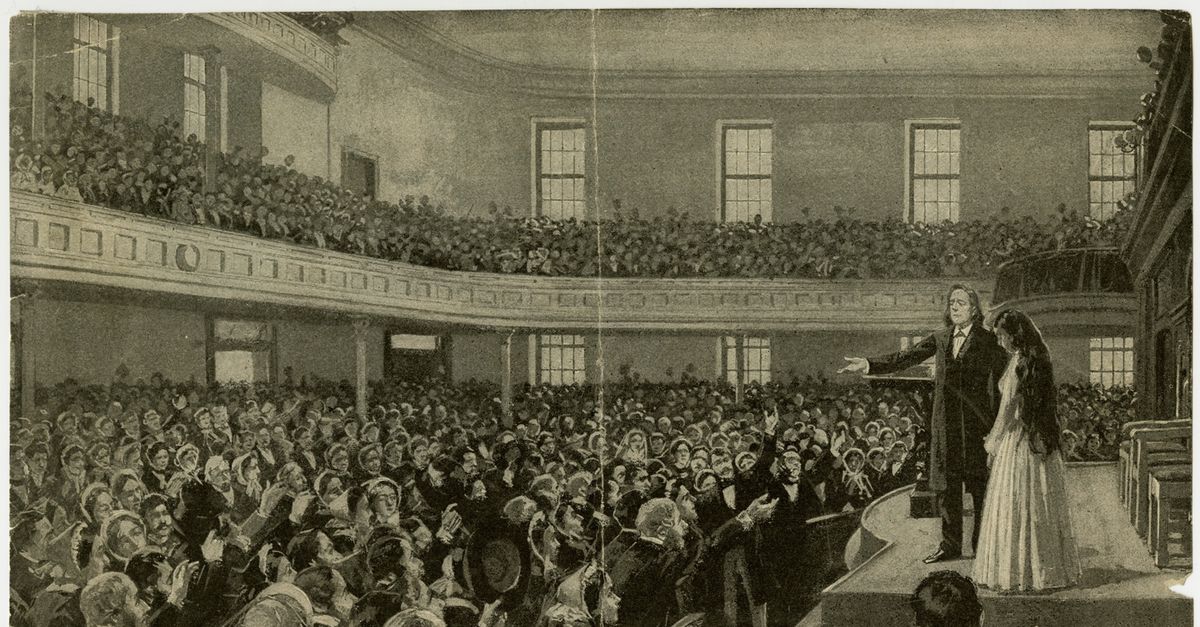June 24, 1813 - March 8, 1887
PASTOR AND ABOLITIONIST
From Litchfield, Connecticut
Served in Brooklyn, New York
Affiliation: Congregational
"The real democratic American idea is, not that every man shall be on a level with every other man, but that every man shall have liberty to be what God made him, without hindrance."
Henry Ward Beecher was a political and social reformer and a prominent clergyman in nineteenth century America.
Beecher was born on June 24, 1813, in Litchfield, Connecticut. His father, Lyman Beecher, placed a heavy emphasis on education. He was a Congregational minister and dedicated his life to his religion and to helping others. Lyman Beecher instilled his beliefs in his son. Henry graduated from Amherst College in 1834. He then entered Lane Theological Seminary in Cincinnati, Ohio. His father was the president of the seminary.
After completing his education at Lane Theological Seminary, Beecher accepted positions as a Presbyterian minister in Lawrenceburg, Indiana, and then in Indianapolis. After spending eight years in Indianapolis, Beecher had developed a reputation for his skill as a speaker. In his sermons he vehemently attacked drinking and slavery. He also called for more political and legal rights for women. As the North and South grew further apart during the 1850s, some ministers condoned violence to settle the differences between the two regions. Following the passage of the Kansas-Nebraska Act in 1854, he sent rifles to anti-slavery forces participating in "Bleeding Kansas." These guns became known as "Beecher's bibles" because they arrived in Kansas in crates marked "bibles." During the American Civil War, Beecher's church equipped an entire regiment of Union soldiers. The entire Beecher family opposed slavery. Beecher's sister was Harriet Beecher Stowe. She was the author of Uncle Tom's Cabin.
Beecher's oratorical skills led the Plymouth Church in Brooklyn, New York, to offer him a position as minister in 1847. He accepted and attracted as many as 2,500 people to his Sunday services. Many of his congregants agreed with his views, but Beecher remained controversial because of his beliefs. Not all white Northerners favored abolition or equal rights for women with men. During the 1870s, Beecher was involved in a scandal. Church member Theodore Tilton accused the minister of having an affair with his wife. A six-month trial resulted in a hung jury. The Plymouth Church concluded that Beecher was innocent of the accusation and he remained minister of the church until his death on March 8, 1887.
This is not our work. It can be found here.


